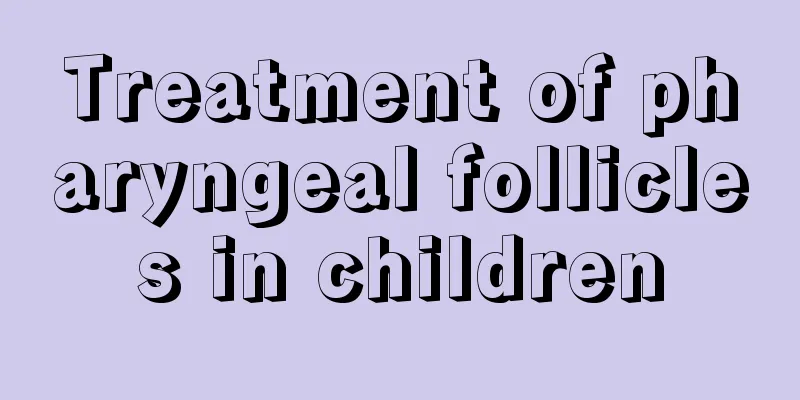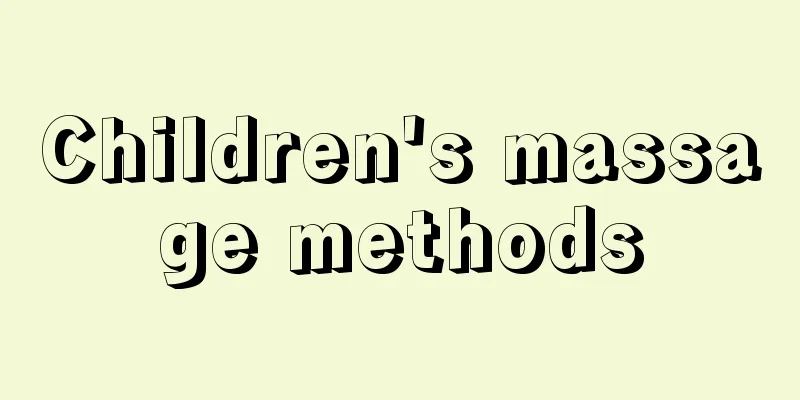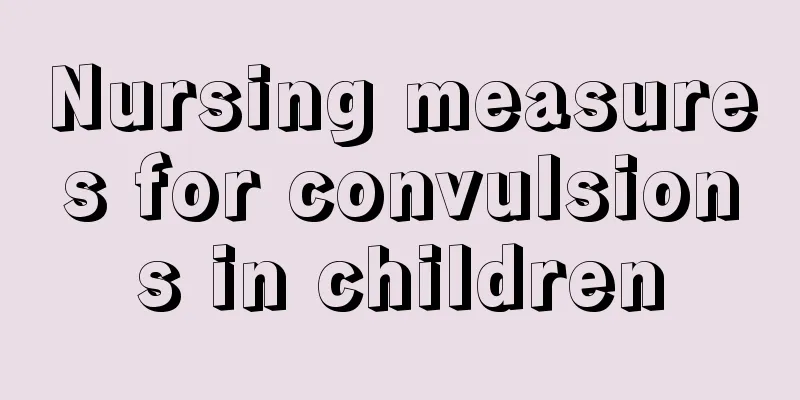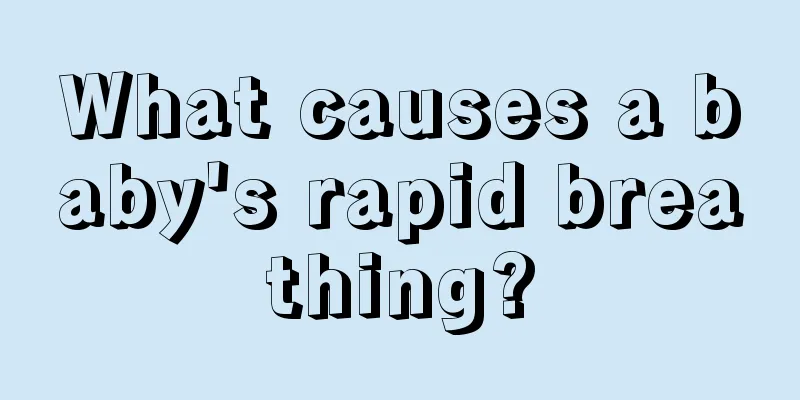How to treat oral herpes in babies?

|
Oral herpes is a viral infection that has been prevalent in recent years. It is more common in children and does not provide lifelong immunity after recovery. Many children are infected every year. Children with this disease will have ulcers in their mouths, swallowing pain, and cannot eat normally, so they cry constantly and it is very tiring to take care of them. Causes Herpes simplex virus infection is mainly transmitted through direct contact with droplets, saliva, and herpes fluid. It can also be transmitted indirectly through eating utensils and clothing. The main mode of transmission is direct entry into the human body through the respiratory tract, oral cavity, nose, conjunctiva, genital mucosa or broken skin. Clinical manifestations Primary herpetic stomatitis (1) It is more common in children under 6 years old, with the highest incidence in children aged 6 months to 2 years. (2) Prodromal symptoms are severe and may include fever, headache, fatigue, muscle pain, swollen lymph nodes, etc. (3) Any part of the oral mucosa can be affected, with the most obvious being the upper palate and gingival margin adjacent to the deciduous molars (adult premolars), which are mainly manifested by clusters of small blisters that are easily broken, forming large areas of erosion. (4) The course of the disease is about 7 to 10 days and is self-limited. Recurrent herpetic stomatitis (1) Common in adults, the course of the disease is about 1 to 2 weeks. (2) Predisposing factors include infection, fatigue, sun exposure, local irritation, emotional stress, gastrointestinal dysfunction, environmental changes, etc. (3) The lesions are usually located on or near the lips, and the main symptoms are burning-blistering-erosion-scab formation. (4) The lesions heal without leaving scars, but may have pigmentation. Treatment principles 1. Systemic antiviral treatment: nucleoside antiviral drugs and ribavirin. For primary herpetic stomatitis, oral acyclovir 200 mg/time, 5 times/day, or ribavirin 200 mg/time, 3-4 times/day can be taken. 2. Local treatment: Topical medication for the oral mucosa. Commonly used preparations include solutions, pastes, powders and lozenges, such as compound boric acid solution, 0.1% to 0.2% chlorhexidine solution for gargle, phthalamide ointment, acyclovir ointment for local application, tin powder, Yangyin Shengji powder for local use, chlorhexidine gluconate tablets for sublingual use, etc. For recurrent herpes labialis, local irradiation with helium-neon laser can also be used. 3. Symptomatic and supportive therapy: Patients with severe illness should rest in bed. Those with difficulty eating can receive intravenous infusion and supplement with vitamins B and C, etc. 4. Treatment with traditional Chinese medicine. |
<<: What should I do if my baby has a high fever? Try these methods to reduce fever!
>>: How to determine if a baby has brain hypoxia?
Recommend
What is the method of pediatric massage for wind-heat cold
We all know that there are many treatments for wi...
Why do children have trouble sleeping?
Poor sleep at night refers to the inability to fa...
Why does the baby snore?
When taking care of your baby, you need to do it ...
How to deal with toothache in children
Toothache is a relatively common problem. Especia...
What are the symptoms and dangers of phimosis in children?
Phimosis not only occurs in adults, but children ...
Prevention methods of hand, foot and mouth disease in kindergarten
The incidence of hand, foot and mouth disease is ...
Why does a 2-month-old baby not sleep and cry during the day?
We all know that when a child is less than 100 da...
What are the causes of abdominal pain and vomiting in children?
In daily life, some children often suffer from ab...
Does the baby need to fast when checking liver function?
As we all know, during the growth stage of babies...
What is the reason for the heavy breathing sound in children?
When a baby is just born, his respiratory tract a...
Is it dangerous to do MRI for babies?
Some children suffer from internal diseases, so t...
The child has a broken ear
Children are gifts from God to their parents. Eve...
Symptoms of ADHD in children, mothers know it early
It is normal for children to be hyperactive, but ...
What department should I go to for torticollis in children?
When children with torticollis go to the hospital...
What are the symptoms of hernia in boys?
Many mothers are always worried about their child...









